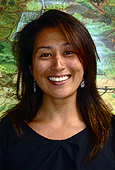 Marion Ano
Marion Ano
Welina mai kākou. ‘O wau nō ‘o Marion Ano. Noho mai wau ma O’ahu nei. Ma Nu’uanu i hānai ‘ia ai e ko’u ‘ohana.
I currently serve as the Next Gen Program Coordinator for the Hawai’i Conservation Alliance. I have the privilege of working with others to build and support the next generation of conservation leaders in Hawai’i.
As a board member for Ka Honua Momona International, a non-profit organization on Moloka’i, I support community-based conservation, local marine resource management, and capacity-building efforts at Ali’i and Kalokoeli Fishponds. Our board focuses on building locally based solutions that integrate applied science in concert with indigenous knowledge.
Additionally, I also sit on the board of HI Capacity, Honolulu’s first makerspace that enables doers to make their dreams come true. This community is where I have found my strong interest in mobile app development. Our current mobile app, the Loko I’a app, aims to explore the intersection between conservation, culture, education, scientific research and social responsibility.
I graduated from Punahou School and received my B.S. in Geological Sciences at the University of Washington. My other interests include songwriting, computer programming, surfing, paddling, traveling, and photography.
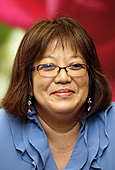 Julie-Ann Cachola
Julie-Ann Cachola
My name is Julie-Ann Cachola; I am half Japanese, a quarter Filipino, and a quarter Hawaiian–an embodiment of the plantation era. I was born, raised, and still reside in the rural area of Wai’anae, O’ahu. Both of my parents were educators, so I started my educational pursuits with an inherent advantage. I was admitted to Kamehameha Schools when I was in the third grade, graduated in 1980, and in 1984, received my Bachelors of Arts degree from Pomona College in Claremont, California. Under the college’s Food, Land, and Power program, I studied abroad in Sri Lanka where I could examine the inner workings of a national native movement (Sarvodaya Shramadana Movement). I completed my graduate work at the University of Hawai’i with the support of an East-West Center scholarship, and earned my Master’s degree in Urban and Regional Planning.
While in graduate school, I started working with Hawaiian grassroots communities. At that time, our rural areas were inundated with resort development proposals and other irreversible commitments of land. I trained communities to critique an Environmental Impact Statement and make effective points in their testimonies, and I taught classes on our state and county planning systems. By day, I was a State Planner, working in the Governor’s Office of State Planning.
In continuing my work with our grassroots communities, I was a leader with the Ka Lāhui Hawai’i sovereignty and self-governance initiative. I traveled to Rio de Janeiro, Venezuela, Rarotonga, Vancouver, and to various States in order to represent Ka Lāhui Hawai’i and sign treaties of mutual recognition with other native nations. The culminating event of my work with Ka Lāhui Hawai’i was serving as the Chair of the 1989 Constitutional Convention.
That was a long time ago. I took a clean break from my work and gave birth to my only son, Nakili, who is now 15 years old. I am currently a planner in the Department of Hawaiian Home Lands, and I still work with Hawaiian communities across the State. I have assisted with developing 21 regional plans in our homestead communities which provide an inventory of resources, issues and opportunities, and engage our lessees in identifying priority projects for each region. I am in the process of developing a computerized GIS (Geographical Information System) inventory of our 200,000 acres of land and its resources.
I am a “big picture” person. I gravitate to “concepts” and I love a good ‘conceptual diagram.’ I think it is useful to wear other peoples’ glasses because it helps to find consensus. I am honored and excited to participate as a First Nations’ Futures Fellow.
 Mark Ellis
Mark Ellis
Mark K. Ellis was born, raised and currently resides on his family’s Kuleana lands in Nu’uanu, O’ahu. He is a husband and father of 4 children. Mark’s community involvement includes; Board member of Ka Ohana O Kalaupapa, Nuuanu auwai study group member and crew member with the Polynesian Voyaging Society. He has an undergraduate degree in Organizational Development, and a Masters degree in Instructional Technology and Design. Mark is currently a Senior Program Manager in the Aina-Based Education Department at Kamehameha Schools.
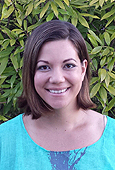 Ke’ala Fukuda
Ke’ala Fukuda
Aloha! My name is Ke’alapualoke Fukuda. I was raised in ‘Aiea, but currently reside in Mānana, O’ahu. My ancestral ties connect me to several of our main Hawaiian islands including Kaua’i, Maui and Hawai’i Island. After graduating from Kamehameha Kapālama, I attended Pacific University in Oregon where I studied Psychology, focusing on ethnic identity and acculturation in Native Hawaiian students. Upon the completion of my degree, I returned to Hawai’i with the intent to work toward supporting my community. To that end, I worked with Nā Pua No’eau as a program coordinator and later with the Office of Hawaiian Affairs, first as a Grants Specialist and later as a Research Analyst. I currently work for the University of Hawai’i as a Contracts and Grants Specialist primarily serving the John A. Burns School of Medicine. My research interests are diverse and include the social aspects of economic issues pertaining to Native Hawaiian communities. In both my career and personal life, I have endeavored to utilize my education and experiences to serve, and to learn as much as I can about both my lāhui and the land we belong to. I am honored to be a participant of the First Nations’ Futures Program. I look forward to the opportunity to share knowledge with my fellows and contribute to the well-being of my community.
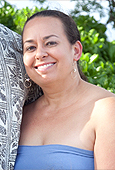 Pōhai Kukea Shultz
Pōhai Kukea Shultz
Aloha e nā hoa makamaka o nēia pae ‘āina ma ka lā puka mai i Ha’eha’e a i kona welo ‘ana i ka mole ‘olu o Lehua. My name is Pōhai Kukea-Shultz and I was raised in the waters of the ‘ahupua’a of Waikīkī. I am a wife and mother of two keiki in the Hawaiian Language Immersion Program – a kuleana that our ‘ohana embraces in everything we do both in and outside of school.
I am also a doctoral candidate in Education at the University of Hawai’i at Mānoa and am exploring how makua make the decision to send their children to immersion and how they sustain that decision over time. This is a research topic that I have a close relationship with as it is something that we are navigating as an ‘ohana as well.
In a full-circle way that has defined most of my life thus far, what I do for “work” is innately connected to what we do as an ‘ohana at home. I am an academic advisor in the College of Education at UH-Mānoa and help to coordinate Pu’uhonua: Hale for Native Hawaiian Student Support. The goal of Pu’uhonua is to help Hawaiian students who want to gain admission to our college and support them through graduation. These graduates are not just future teachers and educators to me – they are the future teachers of our keiki and as such, I recognize the kuleana that I have to support them in their educational goals for the betterment of our entire lāhui. In this work, I am able to fulfill my kuleana to my ‘ohana and lāhui and I feel so fortunate that my kūpuna have led me down this path. Mahalo!
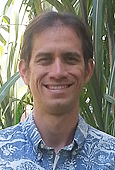 Maka’ala Rawlins
Maka’ala Rawlins
Me ‘oukou ka welina o ke aloha. My name is Maka’ala Rawlins and I was born and raised on the east side of Hawai’i Island in the Hawaiian homesteading communities of Keaukaha and Pana’ewa. Growing up on a farm, homesteading with my parents and grandparents, provided me with many experiences that have helped shape my worldview.
My grandfather taught me how to farm, but perhaps his most important lesson was to always stand up for your rights. My grandmother taught me how to conserve, be frugal and always keep learning. My mother exemplified those lessongs by helping to forward the grass-roots Hawaiian language movement and helped in forming the ‘Aha Pūnana Leo, an immersion preschool system that connects children with Hawaiian speaking elders. Its mission, which continues today, is “E Ola Ka ‘Ōlelo Hawai’i,” The Hawaiian Language Shall Live. Being surrounded with these influences and plugged into these communities as a child helped to influence my path in life up until this point.
After graduating from the University of Hawai’i at Hilo in 2002 with a BA in communications, I returned to the ‘ōlelo Hawai’i community. Serving for five years as a scholarship counselor and community coordinator for the Lamakū Scholarship Program, whose focus was helping to build capacity for Hawaiian medium educators. During this experience, I had the opportunity to work collaboratively with other Hawaiian communities statewide coordinating community service activities for scholarship recipients. My work with these various Hawaiian communities opened up another opportunity to serve my lāhui Hawai’i in another capacity.
In June 2008, I returned to serve my high school alma mater Kamehameha Schools as a Cultural Specialist for Ho’okahua – Cultural Vibrancy Division under the office of the CEO. One of our Division’s goals is developing people and environments across all of KS towards cultural principals and vibrancy so that we can better meet our organization’s mission. My responsibilities under this division have primarily been focused on managing a cultural staff development program, along with providing consultation, guidance, translation, and editing services for special projects with organization-wide impact.
Outside of my professional career, my service for community has manifested itself in other ways. For the past 3 years, I have served as the president and co-founder of Hulu Mamo Hawaiian Civic Club, which is part of the larger association of Hawaiian Civic Clubs. As a civic club president, I have had to help plan community events, draft resolutions, and forward programs that have positive impacts on the Native Hawaiian community.
I am humbled and honored to be part of the First Nations’ Futures Program. I’m excited to work closely with other fellows to find generative solutions and create synergistic opportunities through our work for the community.


